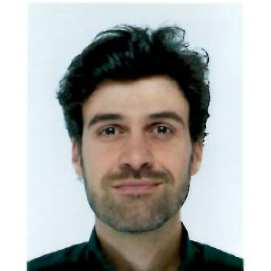
Jorge del Cueto Chocano , Dr.
Biografie
short bio
Jorge Del Cueto Chocano is Spanish Doctor in Vegetal Biology. He carried out Agronomic Engineer studies at the University Miguel Hernández (Spain) between 2004 and 2010. Later, he performed a Master on Biotechnology and Biology of the stress of plants by the University of Murcia (Spain). At the end of 2011, he started PhD in CEBAS-CSIC Murcia at the department of Genetic Breeding in Stones Fruits. During this period, he did one year at the University of Copenhagen (Denmark). After finishing the thesis, he got a Post-Doc Position from 2016 to 2020 with the research group in fruit growing – Arboriculture at Agroscope Conthey in Switzerland. Since 2021 he is involved in a Sus-Crop-ERA-NET Project in the Crop Production and Biostimulation Laboratory at ULB in Belgium. The project has a duration of three years.
Research summary
During his PhD research in Spain and Denmark, the main goal of the thesis was to find the responsible gene of the bitterness in almond and develop molecular markers able to detect and select the sweet genotypes before the tree gives fruits. In 2019, this work was published in the prestigious journal “Science”. Moreover, analysis of secondary metabolites, dormancy and flowering studies, characterization of enzymes and transcriptomics studies were carried out in almonds.
During his first Post Doc in Switzerland, he approached the problem of brown rot caused by the fungus Monilinia laxa in apricots through the creation of new resistant varieties in the frame of organic production of apricots. Development of genetic maps and responsible regions of resistance to the fungus identified by Marker Assisted Selection (MAS), improvement of phenotyping methods and identification of QTLs for resistance to the pathogen were achieved.
During his second Post Doc in Belgium, he is studying the enhancement of new and/or predictive plant breeding technologies and the development of new genotypes leading to new phenotypes towards the release of improved crop varieties that are capable to adapt to future changes in environmental and climatic conditions in Europe. Project could also target improvement of variety selection processes to support agroecological practices. He is working with two C4 cereals panels: maize and sorghum, and two stress conditions: nitrogen and hydric limitations. Genomewide association studies and transcriptomic approaches will be performed in order to achieve the previous mentioned goals.
Keywords
Plant breeding, plant phenotyping, plant genetics, plant physiology, agricultural biotechnology
